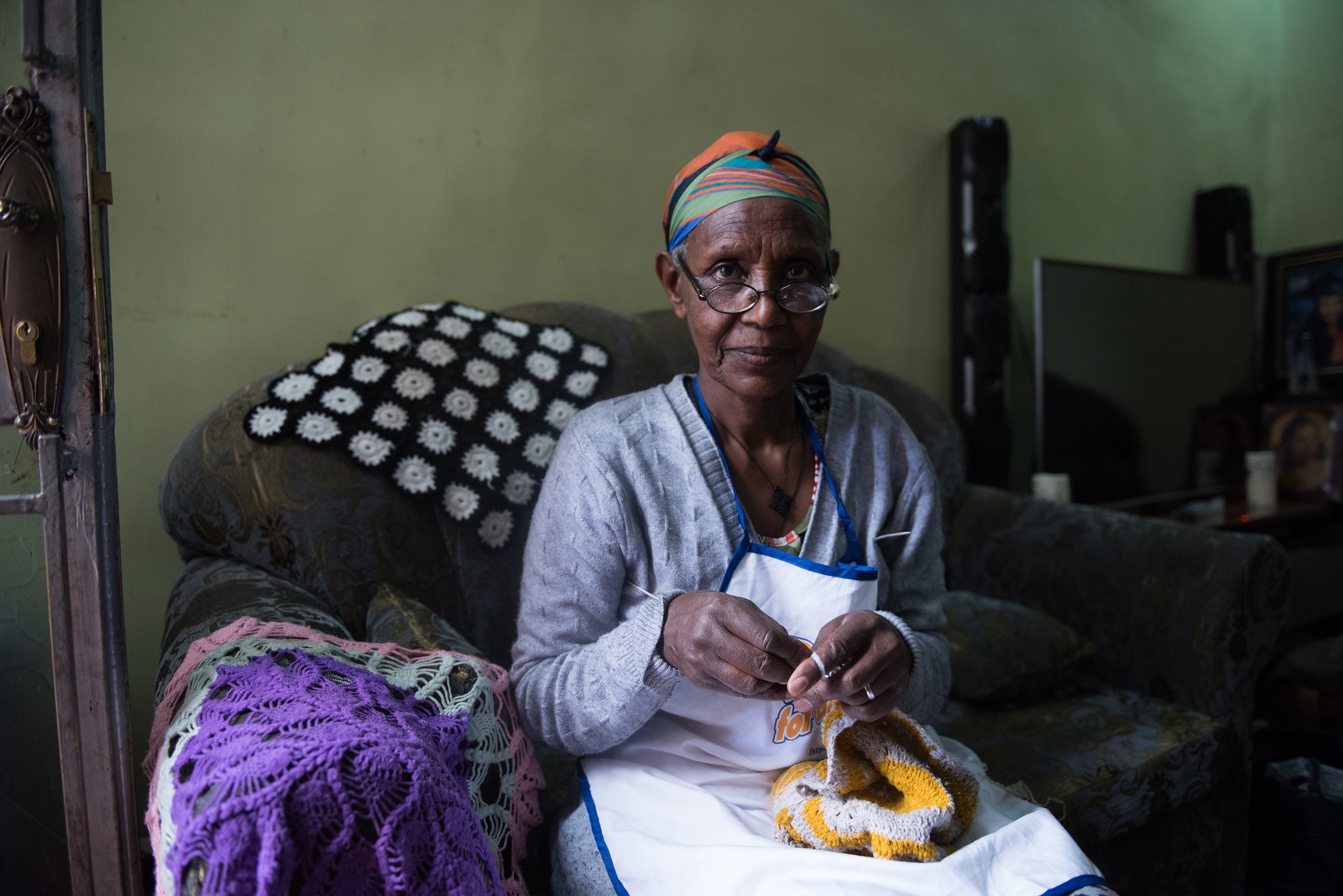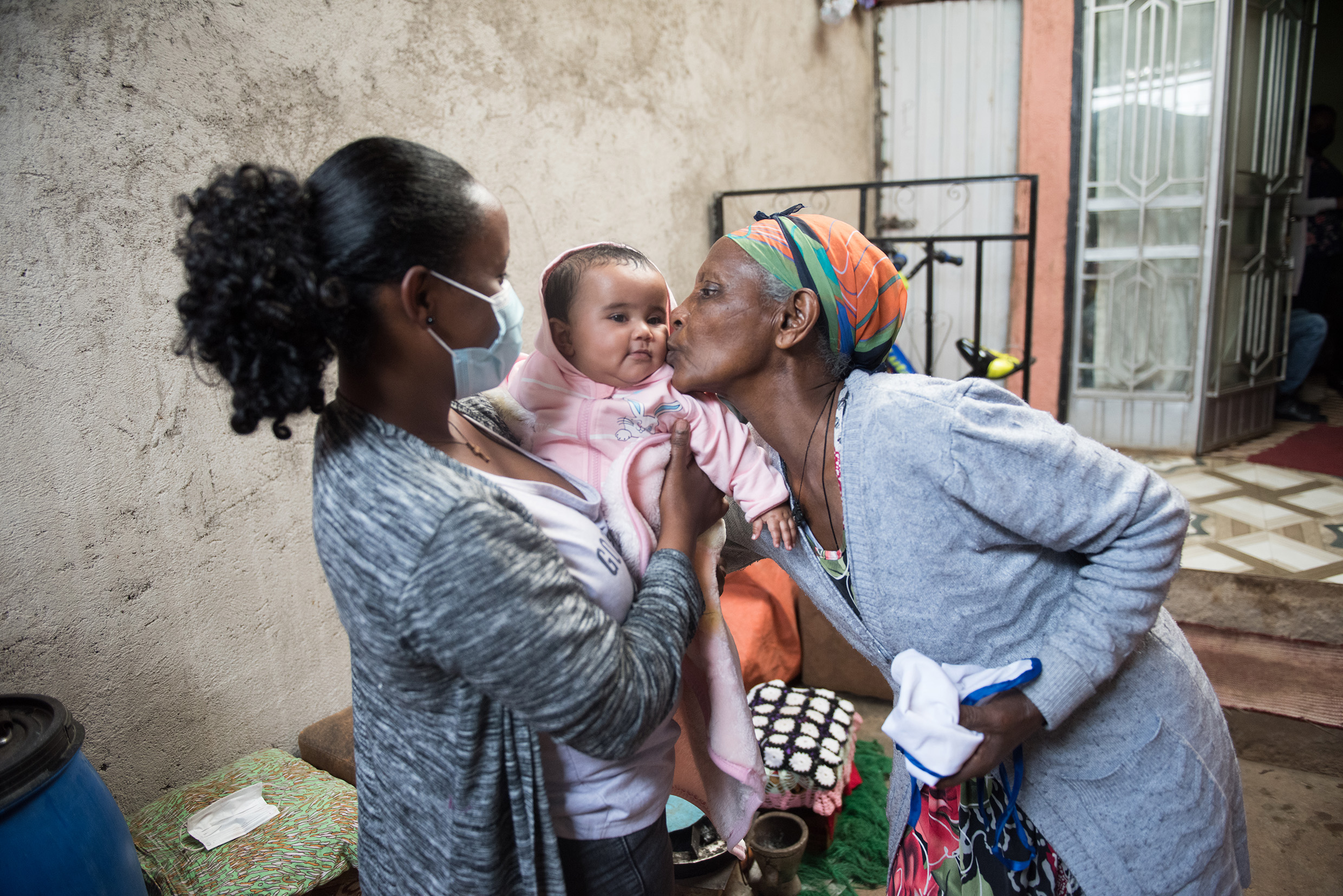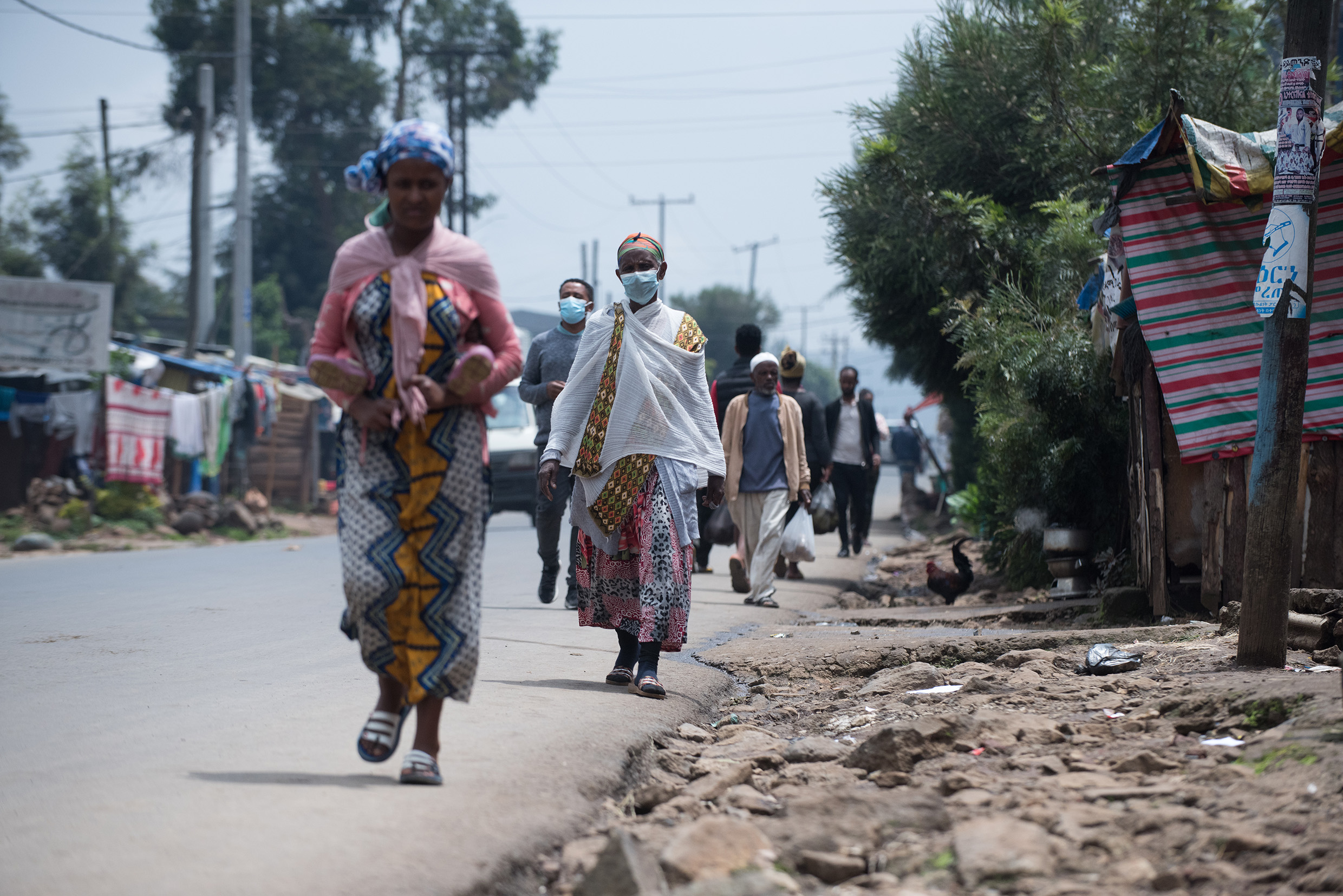
I'm a role model but my contributions at home aren't valued
Askale is a leader in her community who has helped raise eleven children, but feels that the contributions of older women are often undervalued. She calls on governments to do more to improve the lives of older people.

Askale was born in rural Ethiopia. Her parents were farmers who believed in education, so she attended school, making the 16km round trip each day to get there. She was lucky enough to graduate from high school in accounting and work in various organisations before getting married. After marriage, she moved to Addis Ababa had eight children, sadly losing two at an early age. She also looked after her brother’s five children after he and his wife passed away.
Whilst she was bringing up the children with her husband, she needed additional income and benefitted from savings and credit from the Cooperative of Tesfa Development Association. Askale and 26 other women formed a group to work, engaging in food preparation, weaving and hand crafts. Sadly, the group dissolved, so she worked at home selling injera, preparing and selling spices, and spinning cotton, but the increases in prices meant she had to stop due to loss of profit.
Like other older women in Ethiopia, Askale takes part in ‘iddir’, actively engaging in social services in her community, and unusually for a woman, she is one of the committee leaders. She is also a home-based care provider for needy older people, receiving funds from charities to complete local community projects such as paving their local streets.
“I am very happy and proud of the services that I provide to my community.”
Askale usually wakes at 3am to pray, then prepares breakfast for her family, supports her husband to take medication, sends her grandson to school, makes the beds and cleans the house, prepares lunch and washes clothes. Later she visits older people in the community where she provides home-based care, and twice a week she goes to the ‘iddir’ office. She also has a board meeting with them once a month.

Six people are dependent on Askale, for support in the home - her husband, son, daughter and two grandchildren.
“I know my children want to try to assist me and carry out some of the activities, but it is very difficult to do after returning back from their work, so there’s still a burden that I seem to carry all by myself.”
Washing clothes is one household chore that is becoming particularly hard for her as she gets older, with only a manual washing machine, and water and electricity shortages a daily challenge and drain on her energy.
Askale doesn’t get any income for her household chores – and since her business stopped, she is unable to provide income to her family.
“The family depends on my husband’s salary as a source of income… it enables us to cover our basic needs and paying for utilities.”
However, her responsibilities are also breaking boundaries in her community.
“I can say that I am breaking some of the social norms and engaging in some activities which are mostly meant for men; for example, I am active in ‘iddir’ leadership role which is culturally given to men. I raised all my children without differentiating gender roles. Sometimes, people tell me that I am a role model for other women as I am proactively engaging in social activities.”
She provides care to others in her community through the Tesfa home-based care services, which makes her happy. She feels her work in the community and with the iddir provides social cohesion and “good relationships with community members, and they acknowledge and appreciate my contributions.”
Whilst her contributions in the community are valued, she doesn’t always feel the vital work that she and other women do for their households is appreciated.
“My family and community members appreciate what I am doing both for the community and my family and encourage me to keep it up. However, sometimes some of the community including my husband consider household chores that I am accomplishing from morning to night as less important and fruitless as it doesn’t generate income. Anyway, there are positive and negative attitudes about unpaid work carried out by women at their homes as well as at the community settings.”

Askale worries about being lonely and dependent on others in old age. The increase in living costs and the inability to earn an income makes her worry about whether they will be able to cover their basic needs. She says,
“The lack of attention to older people by their families and community members may continue, they will be left without any support. I think the situation could be improved through the collaboration of government and non-government organisations as well as community members.”
She would like to see a sustainable and predictable income for all older people in the form of a pension and an older person centre run by the government for older people who are in need or abandoned so that they get the attention and care they need. She feels older people are not recognised for their hard work and should be appreciated for their contributions to encourage them to keep up their good lives and work.
Since the COVID-19 pandemic, Askale cannot visit older people as frequently as she used to before the pandemic. Instead, where possible she contacts them by phone although most of them are too poor to have phones.
“I feel bad as I can’t provide the service as expected. To see people who live in poverty, who feel loneliness, especially older people who are abandoned makes me very sad.”
But she gets satisfaction and happiness from giving her time to the community, especially the service she provides for needy and vulnerable people. And she likes that her responsibilities keep her busy.
“My daily routine makes me happy and satisfied. I enjoy being busy as it distracts me from my grief due to the loss of my siblings. Prayer time is my favourite as it is an act of communicating with my God and relief from my grief.”
Askale has suffered much grief in her life, with the loss of her youngest brother and his wife, leaving behind their five children – she was unsure if she could cope with the responsibility of caring for the orphaned children in such a small house with limited income. It made her depressed and even suicidal at times. But with her children and her nephews and nieces all successfully graduating, she and her husband are now proud to say that: “The biggest success is the graduation of 11 children and their ability to lead successful lives.”
Askale says:
“I would like to pass the following messages for all government and community members about older women like me: You all have to give due attention to older people and women, since women are the pillars of the family and peacekeepers for their communities as well as for the country. We have been actively engaging in different development activities. Thus, attention to them should not be theoretical, they need practical actions that improve their living conditions. Government has to undertake measures that improve the livelihood of older people including providing pensions as the developed countries do.”
 Follow us on social media
Follow us on social media
Keep seeing our stories or ask us a question - connect on Facebook and Twitter.



